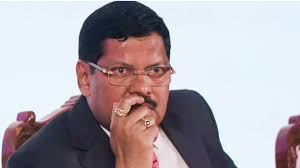CJI Gavai Declines Post-Retirement Government Role, Cautions Against Judges Entering Politics or Accepting Immediate Appointments
Chief Justice of India (CJI) D.Y. Chandrachud, speaking at a prestigious roundtable hosted by Lord Reed of Allermuir, President of the UK Supreme Court, emphasized his firm decision to decline any government role after retirement.
His remarks addressed growing concerns over judicial independence, especially in the context of judges taking up political or administrative positions immediately after leaving the bench.
Delivering his address at the UK Supreme Court, CJI Gavai highlighted the ethical dilemmas associated with such transitions, stating that judges accepting post-retirement roles in the government or resigning early to contest elections undermine public trust and raise serious ethical red flags.
“Such moves,” he said, “could be perceived as compromising the impartiality and independence that the judiciary must uphold.”
“If a judge accepts a government appointment immediately after retirement, or leaves the bench to enter politics, it may appear that their judicial conduct was influenced by prospects of future personal gain,” he remarked, adding that this perception could irreparably damage public faith in judicial integrity.
CJI Gavai went on to explain that he, along with several of his colleagues, has publicly pledged not to accept any government posts after retirement.
“This is not just a personal decision,” he stated, “but an attempt to uphold the credibility and independence of the judiciary in the eyes of the public.”
On the Collegium System and Judicial Independence
The Chief Justice also touched upon the Collegium system—India’s mechanism for appointing judges to higher courts. Acknowledging that the system has faced criticism over the years, he asserted that any alternative must not endanger judicial autonomy.
“Judges must operate free from external pressures,” he said, “and judicial appointments should reflect that principle.”
Addressing Corruption Within the Judiciary
In a moment of frank introspection, CJI Gavai admitted that instances of corruption and misconduct have occurred even within the judiciary, stressing that such incidents naturally affect public confidence.
However, he was quick to note that the Supreme Court has acted swiftly and decisively in such cases, demonstrating its commitment to transparency and accountability.
“The way to rebuild trust is through prompt, clear, and fair action. The judiciary must respond to misconduct with integrity and speed.”
Transparency as a Pillar of Trust
He lauded recent steps taken to enhance judicial transparency, including public disclosure of judges’ assets and the live streaming of Constitution Bench hearings. These measures, he said, were vital to ensuring accountability and enhancing public trust.
“We have a dedicated portal where judges’ asset declarations are made public. This reflects our willingness to be held to the same standards of accountability as any public servant.”
However, he cautioned that live-streaming judicial proceedings must be handled responsibly. Referring to a recent incident where a judge’s light-hearted comment to a young lawyer was misinterpreted by the media, CJI Gavai warned against the risks of misinformation and out-of-context reporting, especially in the digital age.
“A colleague advised a junior counsel about court etiquette in a humorous manner, and it was sensationalized as arrogance. These distortions harm the public’s understanding of judicial processes.”
CJI Gavai concluded by underscoring that the judiciary’s legitimacy stems from earned public confidence, not from institutional power.
“In a democracy, transparency and accountability are virtues, not burdens. As the guardians of the Constitution, we must remain accessible, understandable, and responsible—without ever compromising our independence.”

